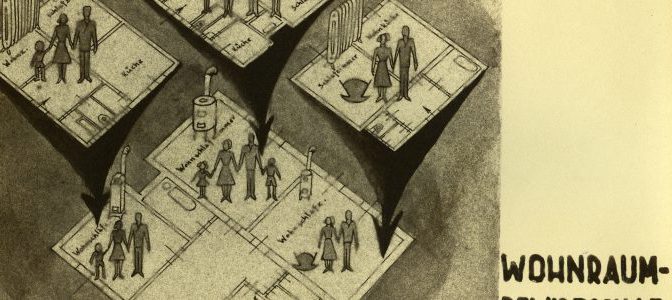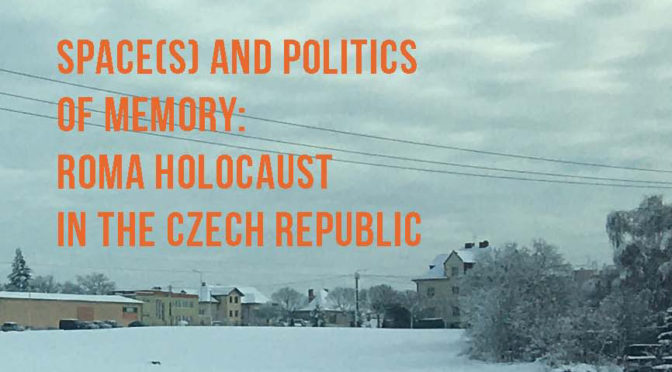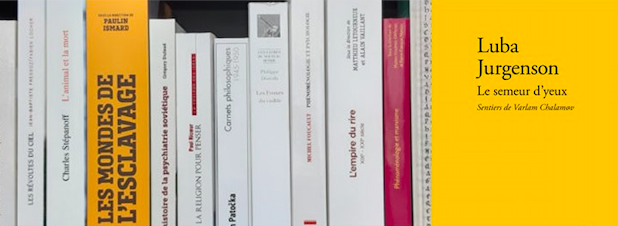
A lecture by Benjamin Frommer (Northwestern University, Evanston) in the frame of the seminar on Modern Jewish History of the Institute of Contemporary History (AV ČR) and CEFRES in partnership with the Masaryk Institute (AV ČR).
Where: CEFRES library, Na Florenci 3, 110 00 Prague 1
When: from 5 pm to 6:30 pm
Language: English
By the time the Jews of Bohemia and Moravia boarded transport trains for the Nazi ghettos in Theresienstadt and occupied Eastern Europe, many, if not most, of them had already been forced to leave their homes and even their home towns. Starting with flight from the occupied Sudetenland in the fall of 1938, the region’s Jews frequently and repeatedly moved over the following half decade. Sometimes they did so voluntarily in an attempt to facilitate emigration or to escape areas with particularly intense persecution. Increasingly, however, Jews found themselves subjected to orders of eviction and resettlement that aimed to make buildings, districts, and even whole towns /Judenfrei /in the name of Nazi policy and to address an alleged “housing crisis.” Scholars have focused on the seizure of the most valuable properties and their redistribution to Germans, but the proponents and beneficiaries of evictions and resettlement throughout the Protectorate included far more than just the occupiers. For the victims, forced migration contributed to their impoverishment and their isolation and, thus, to their ultimate deportation from the Protectorate altogether.
Read more about the colloquia!
Gellner Seminar
Professor Tom Lodge (University of Limerick) will give a lecture within the Gellner seminar organized by the Czech Association for Social Anthropology, the Czech Society of Sociology, in cooperation with the Institute of Ethnology of the Czech Academy of Sciences and CEFRES.
When: 14 May 2019, 4:30 pm
Where: Conference room of the Institute of Czech Literature, Na Florenci 3, Prague 1 – Ground floor, next to the CEFRES Library. Language: English
Abstract
Documented Encounters between South African and Czech communists were sporadic and accidental in the early history of both Communist parties. Many years later the pioneering South African trade unionist, Ray Alexander, recalled meeting Klement Gottwald at a clandestine training school in her native Latvia shortly before her migration to Cape Town in 1930. The Czech crisis of 1939 prompted the resignation of a senior personality in the South African party. Young South African Communists visited Prague just after the Second World War and were later active in the Communist-affiliated international student movement based in the Czech capital. The Czech government maintained a diplomatic presence in South Africa until 1962, the last communist administration to so and Czech officials were urged by South African communists to support trade sanctions. By the 1960s contact between the “fraternal” parties was more institutionalized. At this stage, the Czech army was beginning to supply training to Communist recruits in the insurgent force led by Nelson Mandela, Umkhonto we Sizwe. The South Africa Communist Party, in exile from 1965, held a key party meeting hosted by Czech communists in Prague that year. For the next two decades the South African Party would be locally represented in Prague on the editorial board of the World Marxist Review. The South African Communists were divided internally by the events of the Prague Spring though in public they professed their support for “normalization”. The lecture will explore the background to these contacts and encounters. The Czech “people’s democracy” of the 1950s was a key source of inspiration for the development of the South African notion of a “national democratic” revolution. Czech support for this programme in the 1960s and 1970s was both a source of confidence and fragility, though. The lecture will consider South African-Czech connections and linkages against the backdrop of the broader strategic concerns that informed and shaped Soviet and East European support for the South African liberatory politics.
Tom Lodge is a professor of Peace and Conflict Studies at the University of Limerick.
With a mother and father born respectively in Calcutta and Brno, Tom Lodge was educated in Nigeria, Borneo and Britain. He has a D. Phil from York in Southern African Studies and he is a member of the Royal Irish Academy. After working as a research assistant at the University of York’s Centre for Southern African Studies he began teaching in the Politics Department at the University of the Witwatersrand in Johannesburg in 1978. He remained at Wits University until 2005, leading its politics department through the 1990’s. In 2005 he moved to the University of Limerick as Professor of Peace and Conflict Studies. He visits South Africa two or three times a year and is a board member of the Electoral Institute, a Johannesburg-based NGO. He has published extensively on South African political history. His books include Nelson Mandela: A Critical Life (Oxford University Press, 2005) and Sharpeville: An Apartheid Massacre and its Consequences (Oxford University Press, 2017). He has almost completed a book about the history of the South African Communist Party from its origins in the syndicalist politics of the white labour movement in South Africa in the 1900’s to its present-day development as a mass party. He is about to begin a book commissioned by Routledge entitled “Political Corruption in Africa”.
The sixth session of IMS / CEFRES epistemological seminar of this year will be hosted by
Ekaterina Zheltova (IMS FSV UK / associated at CEFRES)
Pavel Baloun (FHS UK / CEFRES)
Topic: Sovereignty
Where: CEFRES Library – Na Florenci 3, Prague 1
When: Wednesday 6 March 2019 from 4:30 pm to 6 pm
Language: English
Text:
- Humphrey: „Sovereignty“, A Companion to the Anthropology of Politics (ed. David Nugent, Joan Vincent), Malden-Oxford-Victoria, Blackwell, 2007, 418–436.
- Jennifer Illuzzi, “Negotiating the ‘state of exception’: Gypsies´ encounter with the judiciery in Germany and Italy, 1860-1914”, Social History 4/2010, p. 418-438.

Space(s) and Politics of Memory:
Roma Holocaust in the Czech Republic
A Proteus Webinar
When: December 10th, 2021, at 10 am
Where: en ligne on zoom ID 450 714 1898 code 681515
https://upr-si.zoom.us/j/4507141898?pwd=MnVqYmZPTzZqbldYUEFHODRSbXlldz09
Language: English
Speaker
Yasar ABU GHOSH, lecturer, Charles University, Faculty of Humanities
Discussants
- Alenka JANKO SPREIZER, associate professor, University of Primorska, Faculty of Humanities
- Nikola LUDLOVÁ, PhD candidate at Central European University and CEFRES
A Proteus webinar organized by
- Petra KAVRECIC, assistant professor, University of Primorska, Faculty of Humanities
- Felipe Kaiser FERNANDES, PhD candidates at IIAV EHESS, associated at CEFRES & Charles University
Abstract
In anthropology, the relation of Roma to the past has been a central concern in conceptualizing Romani forms of attachment and belonging. These being enacted in the present, the past is seen as a “foreign country”. However, since 1980’s we have been witnessing a rising engagement of various European Roma and pro-Roma agents with struggles over the recognition of the memory of Holocaust and Romani victimhood. Be it in artistic expressions, in memoirs writings or in political participation, the shift towards historical framing signals a rather different attitude towards the past. The apparent contradiction has been highlighted in several contributions that sought to explain it by reference to new politics of identity, to ethnic emancipation and Europeanization, or by discerning the formation of a Romani elite as the bearer of an emerging political subjectivity.
In my presentation I will build on a dissection of a commemorative practice identified as name-reading, a practice that is constituted at the nexus of inclusive politics of commemoration and what is called the archival mode in Holocaust commemoration. Dissecting the practice should allow to raise questions that would connect a practice of commemoration with some of the cultural frames of memory identified by anthropologists of different Roma communities. I will be asking does name-reading serve what commemoration is supposed to do, that is actualize the past for the needs of the present?
Yasar Abu Ghosh is lecturer in sociocultural anthropology at the Department of Social and Cutlural Anthropology, Charles University, Prague and faculty member of NYU Prague. He specializes in topics related to Central European Roma, economic and political anthropology and ethnographic methodology. His latest research focuses on survival strategies of poor Roma in the Czech Republic, on politics of marginalization and the enduring effects of racialized regimes of state minority policies, as well as on the formation and logic of Romani subjectivity in response to processes of cultural dispossession. In 2016 he was a Fulbright scholar at the Department of Anthropology, University of California in Berkeley, he was also a visiting professor at CEU in Budapest, LMU in Munich, and at EHESS in Paris. Currently he is working on a monograph drawing on a history of participant observation of memory-becoming in relation to Roma and non-Roma struggle over the recognition of suffering and historic memory in Czechia.

CEFRES Book Review
For this special edition of the CEFRES Book Review, we will meet Luba Jurgenson, professor of Russian literature at Sorbonne University, director of Eur’ORBEM, translator, author of fiction, essayist and editor-in-chief of various book series, and we will discuss her latest book.
When: Tuesday, June 28th, at 3:30 p.m.
Where: CEFRES Library, Na Florenci 3, Prague (link to online meeting on request – cefres@cefres.cz)
Language: French
Continue reading Special Book Review – June 2022 →

Gellner Seminar
Daniel Fisher (UC Berkeley) will give a lecture within the Gellner seminar organized by the Czech Association for Social Anthropology (CASA– Česká Asociace pro Sociální Antropologii), the Czech Society of Sociology, in cooperation with the Institute of Ethnology of the Czech Academy of Sciences and CEFRES.
When: 5th February 2019, at 4:30 pm
Where: CEFRES Library (Na Florenci 3, Prague 1)
Language: English
Abstract
Spun Dry: Mobility, Morbidity, and Jurisdiction in Northern Australia
This paper pursues an ethnographic account of intra-Indigenous relations and jurisdictional contest in urban northern Australia. Its narrative explores the relationship between Aboriginal community policing and emergent forms and figures of urban mobility and morbidity in Darwin, capital of Australia’s Northern Territory. While Darwin’s Indigenous patrols have no police powers, they do have some authority and status vested in them by the traditional owners of the country on which they patrol. Their Aboriginal-directed efforts thus entail both an assertion of Indigenous jurisdiction, and an accompanying reflexivity about the substance and limits of its reach — limits informed by settler colonial oversight, by the diversity of Indigenous claims to urban space, and by poetic figures and mediatized narratives that trope the volatility of Aboriginal dispersal and displacement. The paper explores the ways patrols negotiate their authority and reckon its limits, extending a local poetics jurisdiction and movement to illuminate the new urban worlds they traverse. This provides ground for considering the mobility and multiplicity of law and the distribution of sovereign power at the margins of the settler colony.
Daniel Fisher is associate professor of anthropology at UC Berkeley. He is author of The Voice and its Doubles (Duke, 2016) and co-editor of Radio Fields: Anthropology and Wireless Sound in the 21stCentury (NYU, 2012). His work has appeared in American Ethnologist,Cultural Anthropology and collections including Aural Cultures and Keywords in Sound. He is currently completing a monograph on new Indigenous urban worlds in Australia’s Northern Territory, while pursuing a second project on the political life of Aboriginal musical celebrity.




